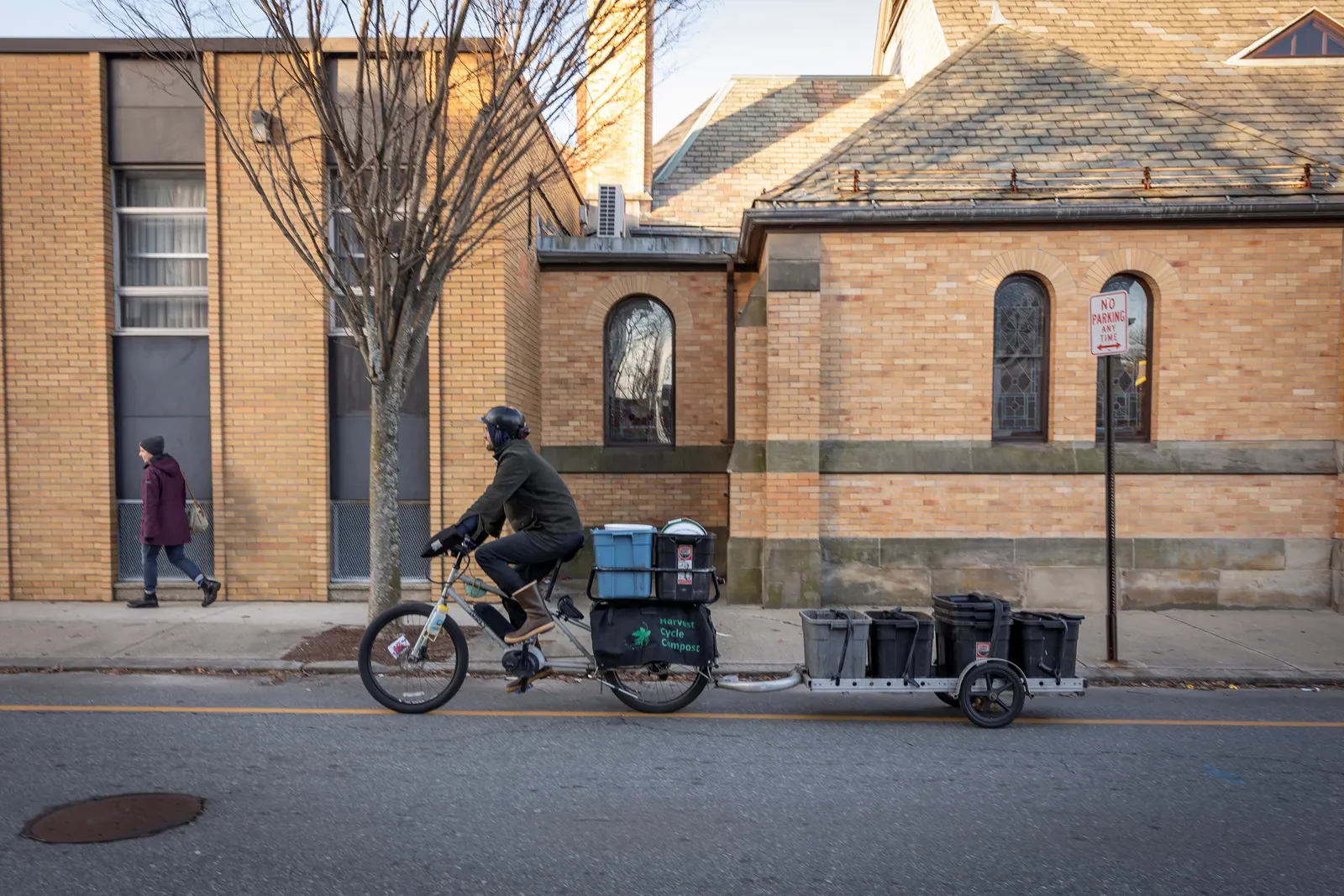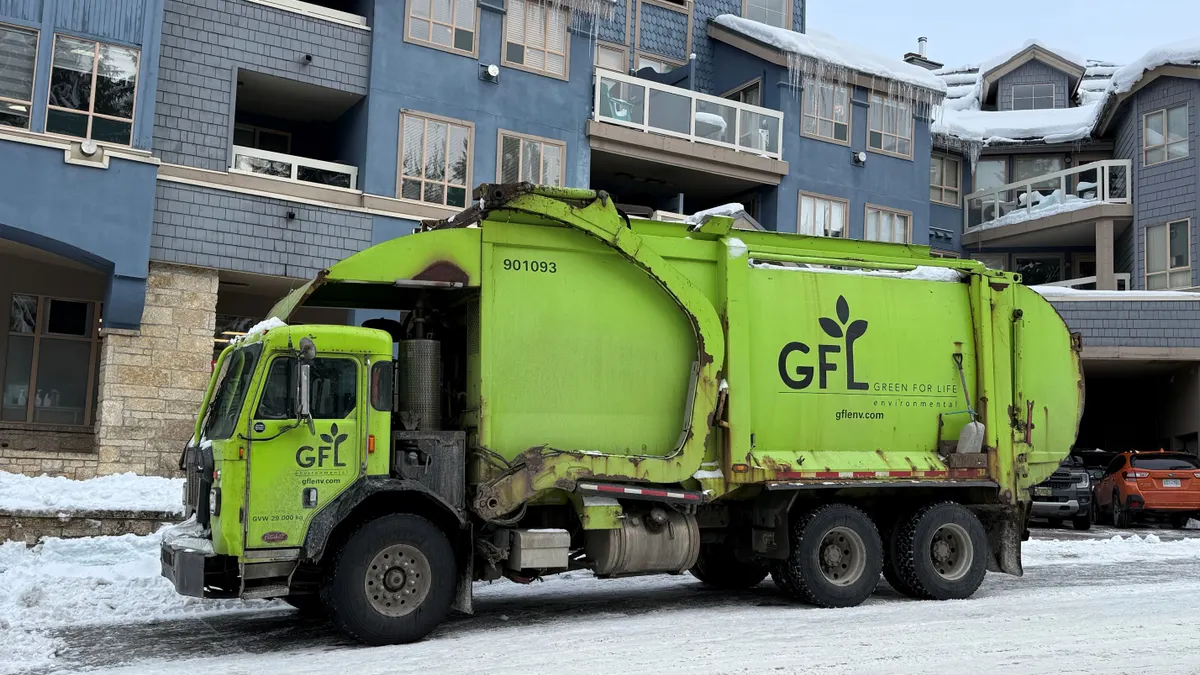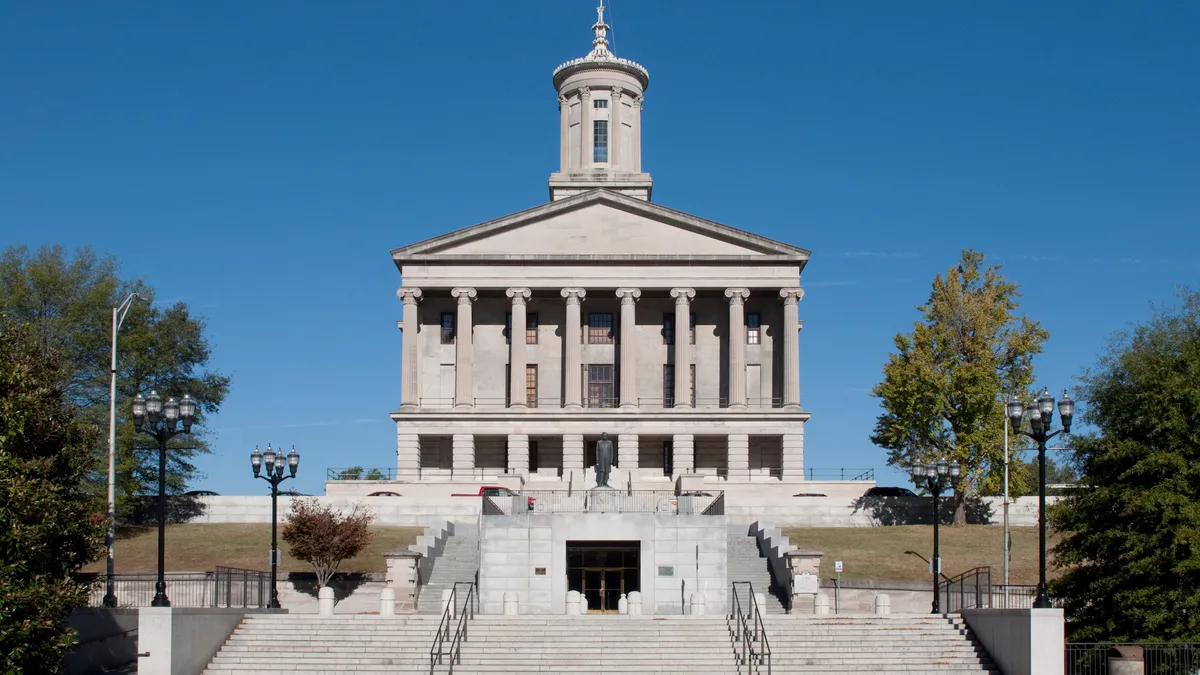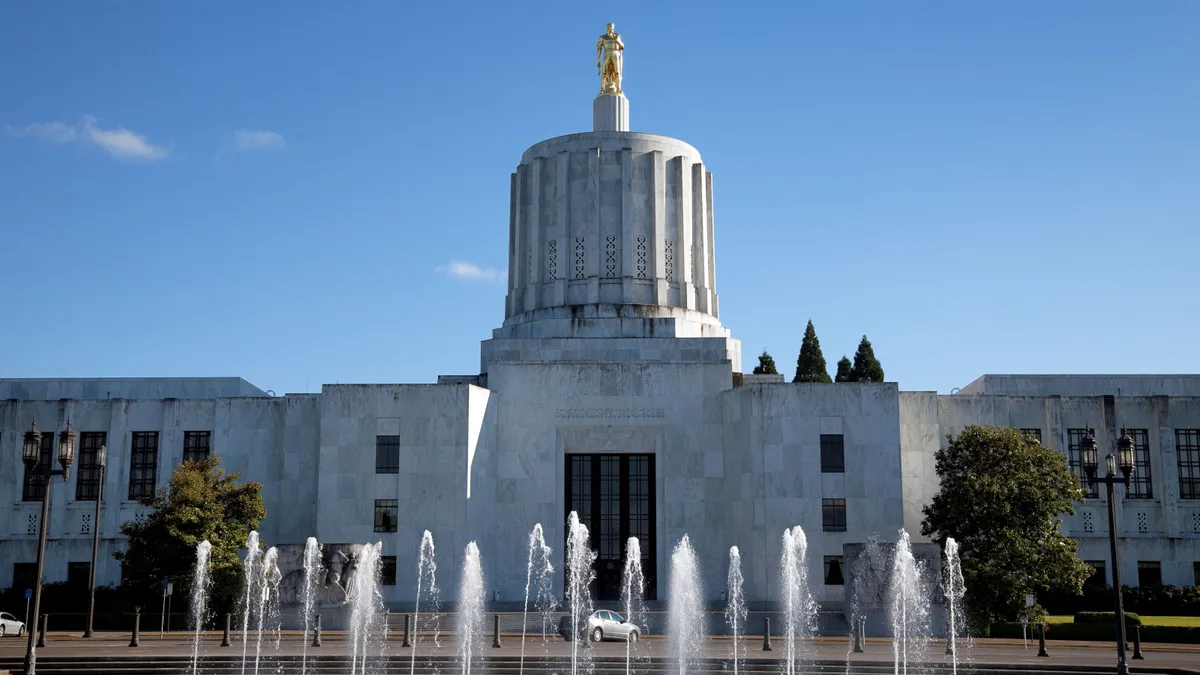When the Northeast Resource Recovery Association was notified it had earned a Recycling Education and Outreach grant from the U.S. EPA three years ago, it was a familiar yet welcome victory. But this year, for the first time in more than four decades of operation, relying on the federal government has felt shaky, Executive Director Reagan Bissonnette said.
For a week shortly after President Trump took office, NRRA was cut off from their funds through a payment system run by the U.S. Treasury. The association's EPA program officer assigned to their grant went silent, then left; another officer has also come and gone with little communication, and the NRRA is still waiting to be assigned a long-term contact moving forward.
Over the past three years, recyclers, composters and other operators in the waste sector have been promised hundreds of millions of dollars in federal funding to support waste and emissions reduction work through the Inflation Reduction Act and Infrastructure Investment and Jobs Act, known as the bipartisan infrastructure law.
The EPA confirmed last month that it would move forward with a selection process for the next round of grants through the Solid Waste Infrastructure for Recycling program and Recycling Education and Outreach program. But grantees who received contracts under a previous round, especially those that reference environmental justice, may still be in peril.
The Trump administration has already canceled nearly 400 EPA grants awarded for a range of environmental causes, some of which would have supported waste and recycling activities, according to a late April court filing. For instance, the Rhode Island Food Policy Council — a consortium of local food donation, composting and waste reduction nonprofits — was notified on May 1 that its roughly $18 million Community Change Grant would be canceled.
Some grant recipients have begun to fight back. Lawyers for Good Government, a nonprofit that offers to connect federal grantees with attorneys or legal advice when their funding is threatened, has received requests for assistance from more than 600 organizations, and the list is constantly growing, said Ryan Hathaway, the organization's director of environmental and climate justice.
"We are seeing them go after things as commonly supported as recycling programs and not burning garbage near communities," Hathaway, who previously led the White House Interagency Council on Environmental Justice in the Biden administration, said. "They're going for PR wins that mean very little to a few people, and I think we're on the right side of things."
EPA spokesperson Molly Vaseliou said in an emailed statement that the agency is "reviewing each grant program to ensure it is an appropriate use of taxpayer dollars and to understand how those programs align with Administration priorities." She characterized the review as common for a change in administration, and did not comment further on the legal basis for pausing or canceling grant funding that the EPA has already contracted to provide.
The EPA's communication has provided people like Bissonnette with little comfort. Grantees say they’ve lost trust in the federal government, and may now need to join a growing pool of organizations fighting for private sector funds. For now, that means some waste and recycling projects across the country will be delayed or canceled as a result of the administration’s decisions.
"We've never before had to worry that the federal government is going to honor its commitment," Bissonnette said. "Now, I would be much more hesitant to apply for a grant program like that."
Losing a ‘generational’ investment
The nation's oldest and largest nonprofit recycling cooperative, NRRA has relied on federal funding for a variety of initiatives boosting the rural New Hampshire communities it serves.
But this new uncertainty has forced the organization to make changes to the way it manages federal grants. Instead of drawing down reimbursement for relevant program expenses quarterly, NRRA now submits expenses every two weeks. Bissonnette said she's also reassigned staff hours in recent weeks as she's awaited confirmation that the federal government wouldn't try to end their grant altogether.
Despite the setbacks, NRRA is still moving forward with its planned promotional campaign for recycling in rural communities. Bissonnette said hers was one of the only organizations who had the staff and experience to apply for and receive funding for such communities in a federal grant program, as well as navigate the Trump administration's decisions.
Other organizations haven't been as lucky. Nessa Richman, network director of the Rhode Island Food Policy Council, said the consortium pulled three full-time job openings when their Community Change Grant funding was first paused. Consortium member Groundwork Rhode Island also halted plans to build an in-vessel composting facility capable of handling 300 tons of food scraps per year.
"[The cancellation] means that there are fewer jobs and less economic development around food waste and wasted food recovery," Richman said. "Having this kind of level of investment really was going to be generational and transformational."

Groundwork Rhode Island has struggled to access the funds the federal government owes them since January, even as the organization has attempted to expand its Providence food scrap pickup service to nearby Pawtucket and Central Falls, said Ella Kilpatrick Kotner, director of compost programs for the organization.
For years, Kotner has been using her own Subaru Crosstrek to haul tools around for her job. But with Groundwork planning to expand its collection network, the organization needed a truck that could handle heavier loads.
In March, she and a colleague went to a Ford dealership and picked out an F-250 that Groundwork could use to shuttle equipment and materials. But when the Food Policy Council, which accesses the grant funding on behalf of subawardees, went to draw down funds to pay for an advance on the vehicle, they were locked out of the Treasury's system.
"It’s definitely quite frustrating and ridiculous and sad," Kotner said. "Statewide, we had a lot of momentum moving in a really awesome direction. ... We would've made a lot of change."
Groundwork Rhode Island is hundreds of thousands of dollars short for the project without the grant funding. The organization has cobbled together financial support from a variety of sources already to get this far, including state agencies, and is actively seeking new financial support. But until it can make up the gap, its expansion plans are paused and its West End processing site in Providence will sit empty.
Even national organizations are having trouble. The U.S. Composting Council is currently waiting for the green light on its own on-farm composting trial, this one sponsored by a U.S. Department of Agriculture program.
Linda Norris-Waldt, the industry group’s executive director, said she and her staff are trying to navigate the new political reality in order to ensure the council and its member organizations don’t lose funding. But the financial outlook has changed.
Finding alternatives
Private investment in the world of organic waste has proven difficult to come by in recent years. In 2024, the sector received its lowest level of investment in four years after peaking in 2022, according to data from food waste nonprofit ReFed.
The federal government is considered an important early investor in nascent industries, like composters and anaerobic digesters, that are looking to play a larger role in the U.S. economy. But operators in the space may need to learn how to attract private investment or other funding streams in order to continue their work.
“I do think people are realistic, and I think they've seen the writing on the wall,” Norris-Waldt said. “It causes people who are in business to diversify how they make money.”
Some grantees who have seen awards paused or canceled may yet receive their funds. Hathaway said Lawyers for Good Government has helped clients notch wins and get money flowing again. He expects there will be more in the future.
“We're winning. It's working. People are getting access, and we are helping them to legally draw down through their terms and conditions,” Hathaway said.
Still, the Trump administration continues to throw challenges grantees’ way. In April, the EPA’s Office of the Inspector General notified Theresa Segovia, who leads the agency’s Office of Environmental Justice and External Civil Rights, that it would be investigating whether the agency acted properly in selecting Community Change Grant recipients. Other court cases around federal funding remain ongoing, and staff reductions are also likely to continue to cause problems for applicants trying to get help from the agency.
“They're trying to find some other avenue to halt funding for things they don't like, but they have no authority to do so,” Hathaway said. “I'm not convinced they're going to find anything or have any success.”
Bissonnette is still hoping the Trump administration will come to see the benefits of work like NRRA’s. She noted that in a state like New Hampshire, where disposal costs are high, boosting recycling can not just reduce emissions and preserve landfill capacity but save taxpayers money as well.
“In a purple state like New Hampshire, I really value that people whether they care about taxpayer money or they care about the environment, you can really care about recycling because it supports both,” she said.






















